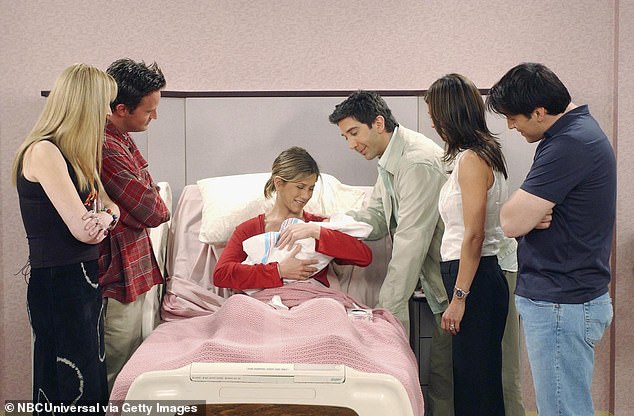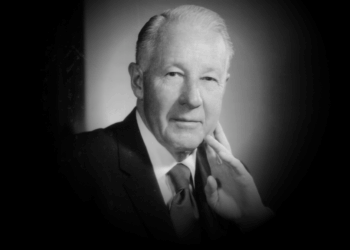The most popular baby names across Europe can today be revealed.
Noah leads the way for German boys, according to the Daily Mail’s interactive map, while Louise tops the table for French girls.
Click on the map to find out the ten most common names given to boys and girls in that particular country.
For girls, Emma and Olivia tied for first place – topping the list in two nations each.
Whereas for boys, Noah seems to be the in-fashion name. Four of the 16 countries included in our analysis selected it as their most popular option.
Although Noah is ‘quite vintage’, Clare Green, who writes for baby-naming website Nameberry, said that it still feels ‘fresh’ to parents.
She told the Daily Mail: ‘Biblical names are universal.
‘Noah hasn’t been used for a long time, but I know that there were a couple of pop culture things that made it popular, like the movie The Notebook.’
Ms Green, whose background is in linguistics, added: ‘I think parents across Europe felt it was just the right time for it to make a comeback.’
Anything can be an inspiration for parents, but some of the biggest sources of name ideas come from Hollywood, music or royalty.
Ms Green said there was an uptick in the girls’ name Emma around 20 years ago in lots of European countries – just after Jennifer Aniston’s character Rachel gave her child the name in the hit US sitcom Friends.
However, not all baby names are universally popular across the continent.
For instance, Ms Green said some of the more complicated-sounding Scandinavian names can be a mouthful to pronounce, meaning they typically stay within their own borders.
Instead, the names that have simple sounds tend to be more universally popular.
Due to the global nature of the internet and modern media, Ms Green believes it may be possible for more names to be shared globally in the coming decades.
She points out that as people continue to travel abroad more, there are now lots of couples having children together from different countries, meaning they will often pick a name that might fit both of their cultures.
She added: ‘But then I think there’s also always going to be some parents who push back against that.’

The spike in the name Noah could be down to Ryan Gosling’s character in the movie The Notebook (2004)

When Jennifer Aniston’s character Rachel gave her child the name Emma in the hit US sitcom Friends 20 years ago, there was an uptick in the girls name Emma
Digging down further into the data, it shows the presence of shorter versions of more classic first names that have become first names themselves, such as Tom or Sam.
The Czech Republic seems to have the most stable popular set of names. Jakub has been the most popular boy’s name there since 2011 and Eliška the most popular girl’s name since 2012.
A spokesman for Preply, a platform specialised in personalised human-led language learning, explained the differences of baby names across Europe.
He told The Daily Mail: ‘In places like Italy or Spain, classic names with religious or historical roots are still going strong.
‘These cultures tend to value family traditions and the idea of passing names down through generations.
‘But in other countries like Sweden, the UK, or the Netherlands, we’re seeing a shift toward more creative or international names. That’s likely down to a mix of exposure to global media and changing attitudes about individuality and identity.
‘Parents are more aware of international trends these days, and it’s not unusual for them to base decisions on things like Netflix series, friends from different cultures, or even their favourite social media celebrities.’
Our analysis comes after England and Wales’ most popular names were revealed last week.
For boys, Muhammad took the top spot for the second year in a row, with Noah coming in second.
Olivia took first place for the ninth year in a row, having topped the charts every year since 2016, while Amelia and Lily came second and third.
Compared to the rest of Europe, the UK’s rules on baby names are among the most liberal in the world – similar to the US.
There are almost no restrictions on parents in the UK when naming their child, except in ‘the most extreme cases’, such as a name which could be deemed very offensive.
In 2016, a mother in Powys, Wales, was banned from naming her daughter Cyanide – a type of poison which Adolf Hitler took before shooting himself.
Denmark, meanwhile, has laws set up to protect the country’s cultural heritage from more unusual name choices and spellings.
Parents have to choose from a list of 7,000 pre-approved names, or seek permission from the government and local church. Each name on the list is assigned to a gender, as unisex names are not allowed.
Similar gender rules exist in Germany, where the parents’ choice must also indicate the gender before it will be approved by the registry office. And you won’t find any Germans named Merkel, Müller or Wagner either because surnames are banned as first names.
France also has a rule around no embarrassing names. In 2015, a judge there refused to allow a child to be named Nutella, after the breakfast spread.
Switzerland also has a rule preventing names from infringing on copyright, and in the past has slapped down attempts by parents to name their children brands such as Mercedes or Chanel.

Some European countries have strict rules about what names they allow
As well as the law, more and more parents are using science to help them make a decision on what to do with their baby.
In recent years, there has been a slew of research into the science behind names which claims to show all manner of trends.
For instance, a study published in the Journal of Experimental Social Psychology found that people with easy-to-pronounce names are often viewed more positively than those with complex or unfamiliar names.
And a 2012 study found that people with simple, easy-to-pronounce names are often judged more favourably. This is because these names are easier to process, they create a sense of familiarity and likability, leading to positive bias.
An analysis conducted by LinkedIn found that CEOs are more likely to have short, simple names.
Meanwhile, a study published in the National Bureau of Economic Research found that boys with traditionally female-sounding names were more likely to have disciplinary issues in school.
The scientists suggested this had to do with how social pressure associated with a name might unconsciously affect a child’s self-perception and behaviour over time.
Ms Green said that although parents look at science to help them make up their minds, what a baby is named often says more about them than their offspring.
She said: ‘I think a name says more about what background you come from, such as what your parents believe and think, than anything else.
‘So names are probably a sign of that rather than actually the cause of any major life chance differences.
‘I know teachers will see certain names on the register, and think, ‘Oh, right here we go’.’
The data was collected from various official statistical bodies across Europe.
It only records official first names, so nicknames or other names that are commonly used were not included.
d












